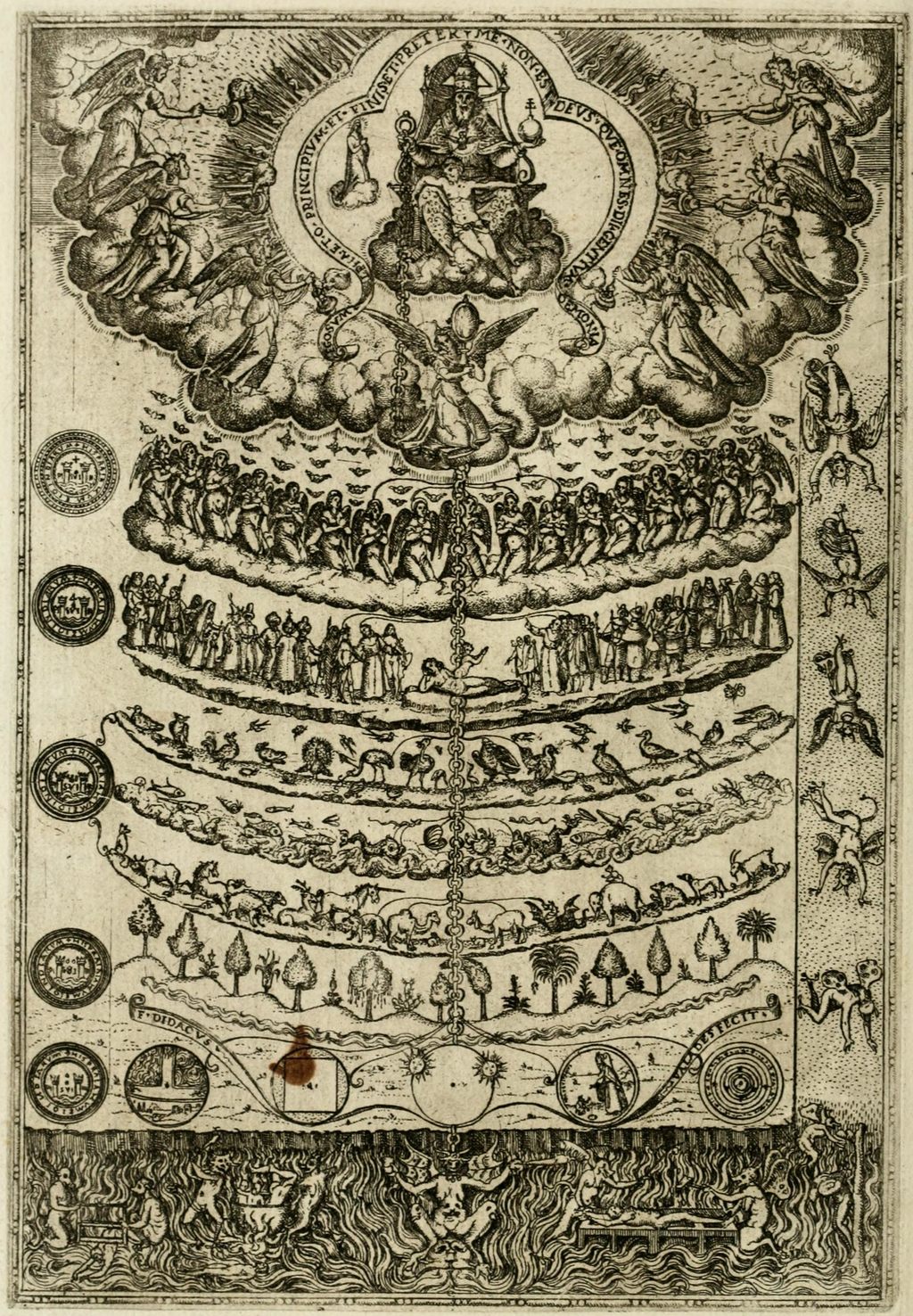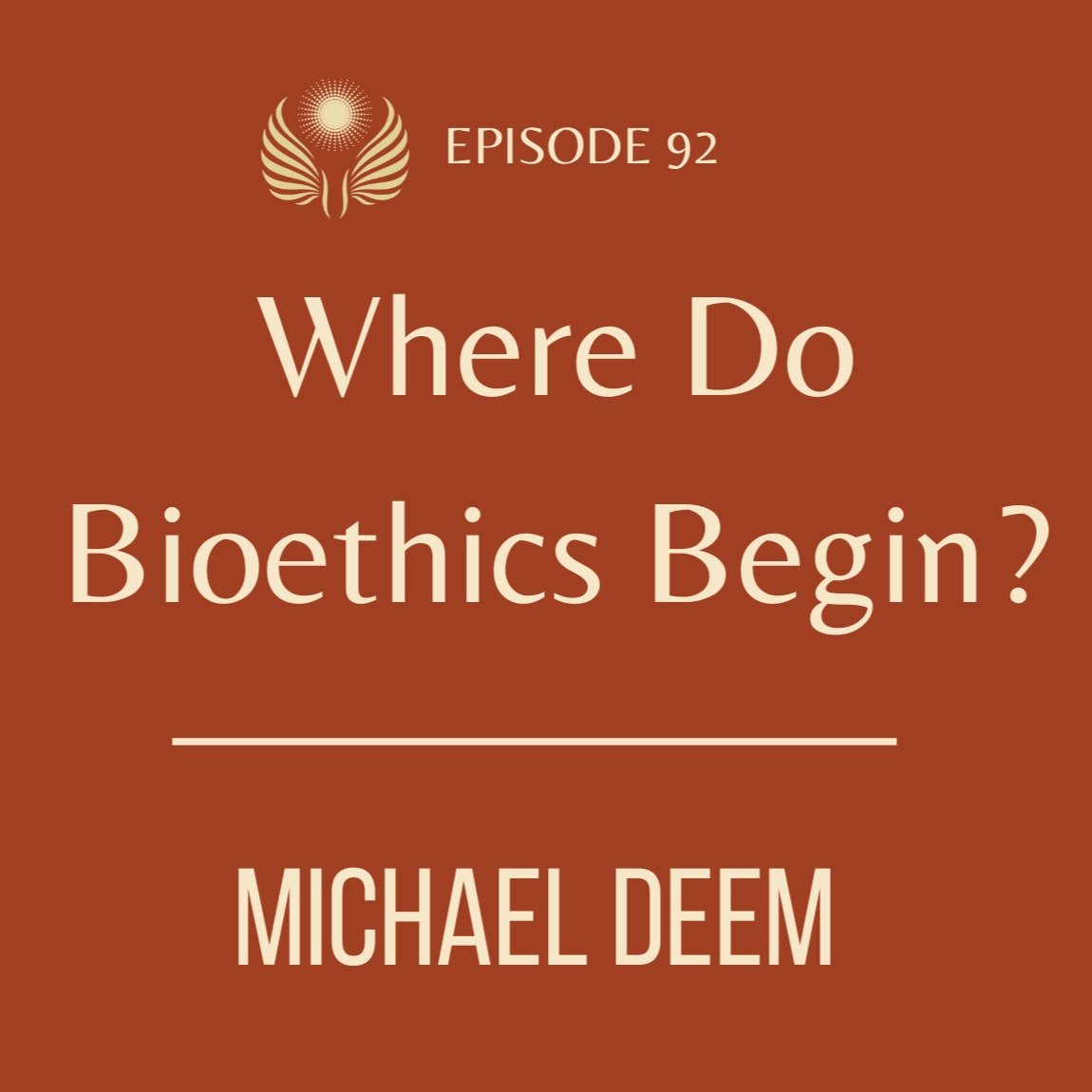The Genealogies of Modernity Journal
The Great Chain of Being, Part I
The chain of being began in ancient philosophy, but it reached its fullest and most systematic expression in medieval Christendom. In the hands of medieval scholastics, the chain of being was personified.
Julia Powell’s genealogy of the Great Chain of Being
The Interaction Problem
Either the mysterious structures underpinning our rationality are arbitrary and misleading, or—somehow—they broadly work… We are forced to wager that there is something somehow connecting our thoughts with reality.
Kit Wilson on science, skepticism, and subjective experience
Our Modern Split Personality Disorder
“As the great phenomenologists and theoretical physicists of the mid-twentieth century saw it, then, science simply cannot deny ordinary human experience without ultimately undermining itself.”
Kit Wilson on science and reality
Worldpicture, Part III: The Cartesian Roots of Quantum Theory and Postmodernism
“We must recognize that the post-Cartesian reductive-materialist frameworks will never be sufficient to support a robust and expansive human flourishing.”
M. G. Scott on re-accessing metastructure
Worldpicture, Part II: The New Quantum Ontology
“The truly strange thing about quantum mechanics is not the content of the theory: it’s the way that quantum mechanics threatens to upend our fundamental relationship to reality itself.”
M. G. Scott on quantum mechanics and truth.
Human Rights and Humanity in “The Phoenician Scheme”
Here in the middle of these muted colors and fantastical plot is an observation straight out of Hannah Arendt.
Elizabeth Stice on philosophy in Wes Anderson
Is Liberalism Dead? Part II
The convergence of liberalism and gnosticism has fundamentally reshaped our political landscape.
Andrew Latham glimpses a “Gnostic Leviathan”
Is Liberalism Dead? Part I
[T]he particular form of liberalism we see today is influenced by what can be described as a contemporary form of gnosticism.
Andrew Latham on the myth of post-liberalism
Hannah Arendt and The Dream of the 1990s: Part II
[The 1990s] can demonstrate the existence and possibility of the very kind of “miracles” that Arendt encourages us to expect and initiate.
Elizabeth Stice explores glimmers of historical hope
Hannah Arendt and The Dream of the 1990s: Part I
If we want memories of miracles to draw on, we can do worse than to remember the 1990s.
Elizabeth Stice on the human role in history's miracles
Two New Studies of Owen Barfield
Mateusz Stróżyński on Owen Barfield, whose philosophy and poetry are “indispensable… for those who want to go beyond the present spiritual and cultural crisis.”
Hit Man and Modern Humans
Murder is a real conundrum for modern humans. Officially, we are against it.
Elizabeth Stice on the violence at the heart of modern life
The Roots of Eugenics and the Hope of Dignity
Either humanity, and thus each and every human, has dignity in its current state, or it, and by extension we, can never claim to have, or give, dignity.
John P. Slattery offers a genealogy of eugenics
On Dentistry: a Mouthful of Memento Mori
Every spoken word was a pilgrim, in some sense, passing through the valley of the shadow of death.
Lauren Spohn ponders death from the dentist’s chair
Where Do Bioethics Begin?
Do bioethicists actually change minds?
An interview with Michael Deem
What is Genealogy? A Philosopher’s Response
Kierkegaard is the thinker that overcomes the systemic optimism of Hegel with meaning and morality actualized by personal commitment to truth, goodness, and beauty.
Chris L. Firestone responds to the Genealogies of Modernity podcast
Modernity and the Evolution of Consciousness: Part II
His experience was that poetry—Romantic poetry in particular—had the potential to expand perception by rousing the imagination in a way that forged a new unity of self and world.
Ashton Arnoldy on modernity as real stage in human history
Modernity and the Evolution of Consciousness: Part I
[T]the distinction we make today between inner realities (consciousness) and outer realities (the physical universe) is not final, nor is it an accurate basis for reconstructing… the pre-human past.
Ashton Arnoldy on modernity as real stage in human history
Living with our Terminal Diagnosis
Contentment requires that one appreciate the good things in life.... We should view reality with a loving, contemplative gaze, as if we were looking at the Rowan Tree.
Xavier Symons reviews the film Living as an antidote to modern malaise























